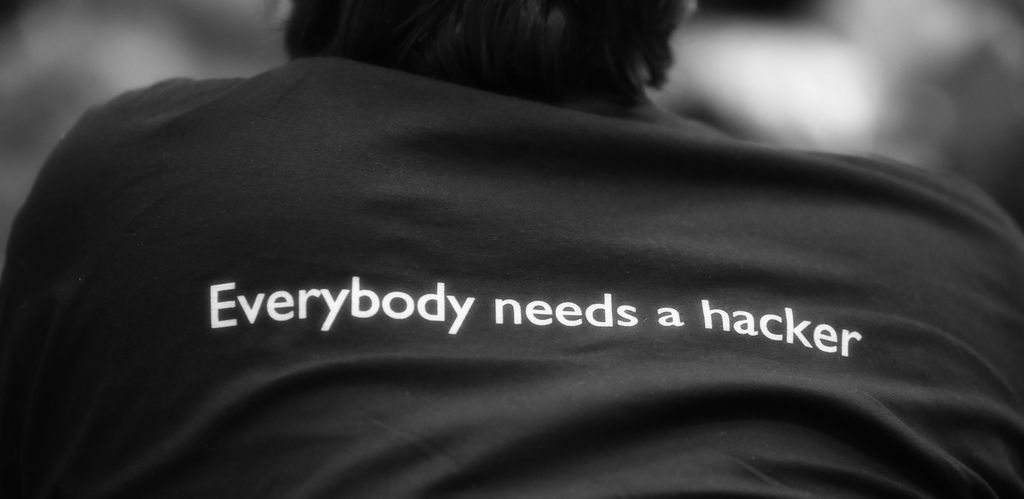There are many names for what we do, with coder, programmer and software developer being the most often used. So why then did we chose the most commonly misunderstood term of all? Because no other term captures what we are building quite like "Hacker" does. Hackership is not just some place where you learn to code better, it's about more than that.

What's a hacker?
Although Eric Steven Raymond wrote his pamphlet "How to Become A Hacker" over a decade ago, the term hacker is still misused and misunderstood by many. Not just by mass-media but even supposedly techn-savvy magazines like Wired still use images of people hacking in dark basements (I recommend reading the hilarious story behind this picture). But as Ben Balter said in his article What is a 'Hacker'? in March:
Being a hacker isn’t about stealing credit card numbers or disabling public utilities, but rather it’s the exact opposite. It’s about embodying all three of those meanings simultaneously. It’s about sharing, openness, decentralization… It’s about trying to satisfy an unquenchable thirst for defying expectations and making the impossible a reality, often involving nothing more than duct tape, bubblegum, and ultimately solutions that purported experts would certainly balk at for being too simplistic.
He goes on to describe the way hackers look at the world as being full of problems to be solved with the general idea that no problem should ever have to be solved twice. Well said.
Why this matters to us
When thinking of the full-time Hackership programme we wanted to build based on the values of OpenTechSchool, we pretty early on realised that it is as much about the culture as it is about learning actual skills. When we talk about openness in OpenTechSchool we think of collaboration instead of competition, when we talk about independent local teams all working together we talk about decentralization, we believe in getting things done and that change happens through that. Sounds familiar? OpenTechSchool itself is built on the ideas and principles of Hacker-ism (if that word exists).
So while Hackership is on the one hand about empowering learners to become better by acquiring technical skills and knowledge, it also aims for enlightenment and awareness of its' participants. It is not meant as an employee factory but rather it's about enabling learners and in turn society to understand that being a hacker is more than just about coding. It is a way to look at the world, a collaborative way, based on openness, sharing and decentralization. What we are adding to the mix is a welcoming learning environment and a hands-on approach.
Thanks to Alexandre Dulaunoy for taking this great picture at this years FOSDEM and releasing it under Creative Commons.

